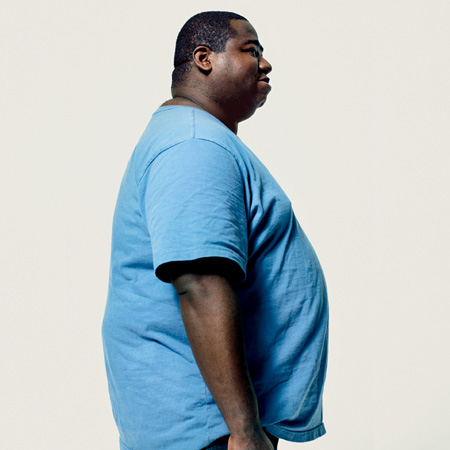The Amount of Weight to Lose to Protect Against Heart Disease and Diabetes
You don’t need to mimic the contestants on The Biggest Loser to gain the benefits of dropping some pounds: Losing as little as 5 percent of your body weight may be enough to help your health, new research from the Washington University School of Medicine suggests.
In the study, obese people who dropped just 5 percent of their body weight improved several risk factors for diabetes, including their insulin sensitivity and the function of their insulin-producing pancreatic beta cells—both of which are important in controlling blood sugar spikes.
The weight loss also helped their hearts, by lowering their systolic blood pressure, visceral fat in their abdomens, and their triglycerides, or fat, in their blood.
It also reduced the fat in their liver by about 50 percent, said study author Samuel Klein, M.D. That’s important, since non-alcoholic fatty liver—The Dangerous Disease That 25% of Men Over 40 Have—can serve as a harbinger to serious health problems like high blood pressure and diabetes.
Interestingly, the researchers did not find any change in markers of inflammation in those who lost 5 percent.
This challenges the belief that weight loss improves heart and metabolic risk factors by reducing inflammatory compounds associated with fat tissue, Dr. Klein says.
The researchers aren’t yet sure what is responsible for the link. But weight loss was shown to reduce oxidative stress—a condition where toxic free radicals can damage cells—which may improve heart and metabolic health, he says.
How Much Weight Loss Should You Shoot For?
In the study, losing additional weight past the 5 percent mark was shown to improve some health markers, like pancreatic beta cell function, even further. But dropping greater than 5 percent didn’t better other markers, like insulin sensitivity in fat and liver tissue.
“This really shows that a 5 percent weight loss is a very good target to shoot for, which is much easier to achieve than 10 percent,” Dr. Klein says.
Plus, knowing you’ll reap the benefits by losing just a little bit of weight—think 10 pounds for an obese 200-pound guy—can make you more likely to start and stick with a program.
“If you make your target more achievable, the chance of failure or the chance of becoming depressed over not being able to do it is less,” Dr. Klein says.
For some men, that 5 percent mark may just be a starting point. The study didn’t look at other issues linked to obesity—such as joint pain, cancer, erectile dysfunction—and a greater weight loss may be needed to combat those. So talk to your doctor to come up with a sustainable plan that works best for your health.
(Start your fat loss with the 21-Day Metashred—the all-new body-shredding program you can do right in your own home three days a week.)
Important note: Because the study was done using obese participants, the researchers can’t be sure that the results will be the same for guys who are just overweight. Still, they’re likely to be similar, he says.
-
The Health Tip That Could Save Your Brain
Can’t remember what you ate for breakfast? Blame your gut. Middle-aged
-
Cholesterol Weight Loss Success Story
Vitals: Brandon Watford, 29, Bonifay, FL Occupation: Salesman
-
Add Support, Subtract Weight:
In the battle to lose your belly, strength comes in numbers. But not r
-
Weight Loss: Abs Diet Circuit Exercises
Muscles get bigger and stronger when theyre challenged with new exerci
-
Belly Off! Club: Darren Williams
Weight Before: 452Weight After: 155Occupation: Customer support direct
-
Super Bowl Snacking
1.25 billion. That’s approximately how many chicken wings will be eat
- DON'T MISS
- Weight Loss: Abs Diet Circuit Exercises
- Abs Diet: Total Body Exercise
- How to Cheat on Your Diet
- How Rex Ryan Dropped 100+ Pounds
- Diet Strategies: Eating Plan
- The TRUTH About Energy Drinks
- Diet Str egies: Weight Loss Breakfast Recipes
- TNT Diet: Chucks Weight Loss Exercise Plans
- Achieve weight loss with Abs Diet recipes
- Diet Strategies: Lose 30 Pounds




